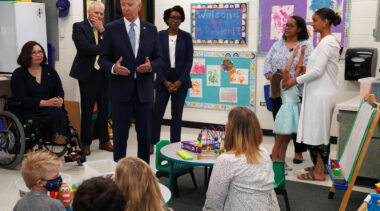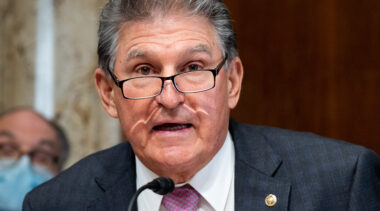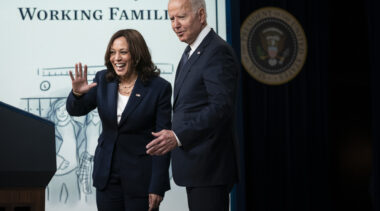Max Gulker, Ph.D., is managing director of technology policy at Reason Foundation.
Gulker’s research and writing bring a fresh perspective to social policy issues and debates. Gulker's recent research topics include welfare and work requirements, the impact of recent government policy on urban poverty, childcare, and cash assistance. Rather than traditional top-down approaches, Gulker looks for social policy alternatives where the private, public, and non-profit sectors empower, rather than dictate to, people, families, and communities in need.
Prior to joining Reason Foundation, Gulker spent five years with the American Institute for Economic Research, where he wrote on social policy, including employment, education, healthcare, and emerging technology, including cryptocurrency, tech antitrust, and the sharing economy. Gulker has appeared on television news outlets, including the Fox Business Channel, print media, including the Wall Street Journal, and podcasts, including Kibbe On Liberty. He has presented research, given speeches, and participated in panels at conferences on economics, technology, and politics.
Gulker received his B.A. in Economics from the University of Michigan in 2000 and his Ph.D. in economics from Stanford University in 2008. Prior to entering the policy research field, he spent several years in the private sector, consulting on litigation, including antitrust, intellectual property, bankruptcy, and shareholder class actions.
-
The FTC claims Amazon is a monopolist but misunderstands online retail
The narrow and rigid definition of online retail markets on which the FTC builds its case against Amazon is out of step with a high-tech economy.
-
Protectionist laws will not save local news
As is typical of protectionist laws, the small group of true winners would be those connected to the power that comes with writing the regulations.
-
What you should know about the newly proposed federal Merger Guidelines
The 13 new guidelines present resistance against prospective mergers far more aggressive than positions taken by authorities for decades.
-
Calls to regulate AI ignore how consumers help shape innovation
If we set up tight guardrails against AI evolution and innovation, we may miss out on the benefits of a technology revolution.
-
Discretionary government power often backfires, no matter its target
The left and right should be concerned about discretionary and targeted power wielded by regulators and the executive branch.
-
FTC Chair Lina Khan’s consolidation of power is a feature of her approach to antitrust, not a bug
New Brandeisians, led by Lina Khan, seek to move away from the consumer welfare standard of antitrust enforcement.
-
Cutting California’s budget deficit and reforming state government
Gov. Newsom should start to eliminate regulations stifling things like infrastructure and housing projects and right-size government.
-
Can the FTC block technology mergers based on future market predictions?
The bid to block Meta from acquiring Within will test the FTC’s argument that potential future concentration is enough to stall the merger.
-
Cannabis markets: Growth, innovation, and burdensome regulation
As the legal cannabis market matures in some states, the regulatory regime in place threatens to stifle cannabis producers and retailers.
-
Three economists receive Nobel for hotly debated work on banking and financial crises
Bernanke, Diamond, and Dybvig’s work, when framed by the events of 2008, has drawn both intense praise and intense criticism.
-
What the movement to break up big tech gets wrong about our digital economy
The uncertainty, fast-moving innovation, and large pool of ideas that characterize online platforms make new competition inevitable.
-
Child care policy debates need more focus on the prominent role that informal care plays
The informal sector is at least as large and important to parents as a daycare, and its results strain low-income parents disproportionately.
-
Sen. Manchin’s proposed reforms to the child tax credit would be a step back in fighting poverty
History shows that work requirements for cash assistance to poor Americans often work much better as political sloganeering than as real programs.
-
Reconsidering the Way We View and Measure Poverty
The Biden administration's increase to the child tax credit will likely help many families, but we also need to change the way we measure and address poverty.














